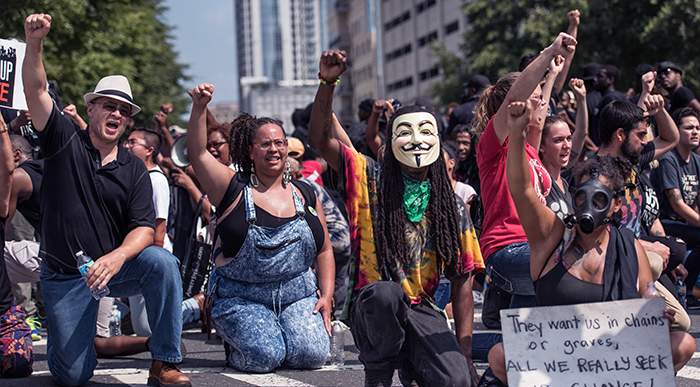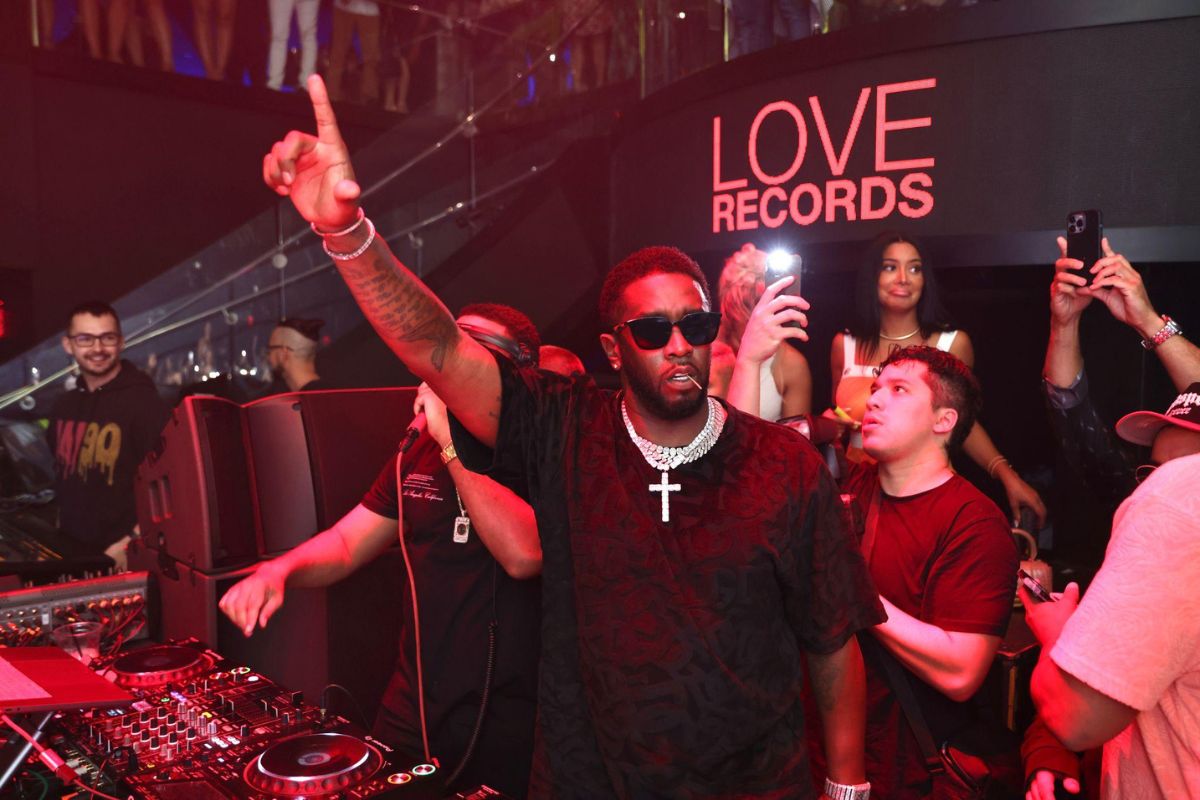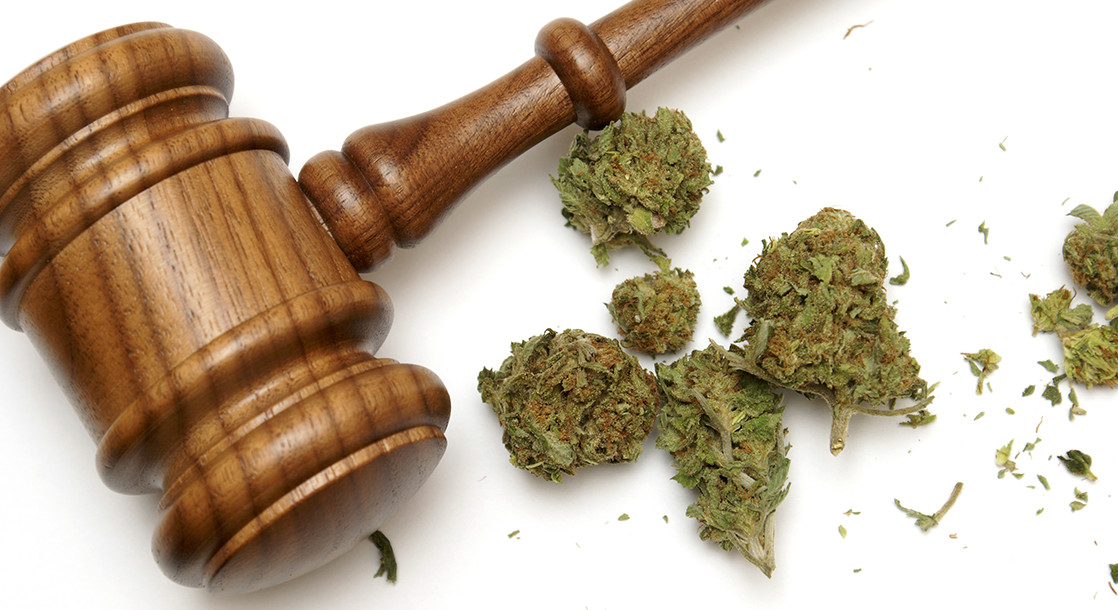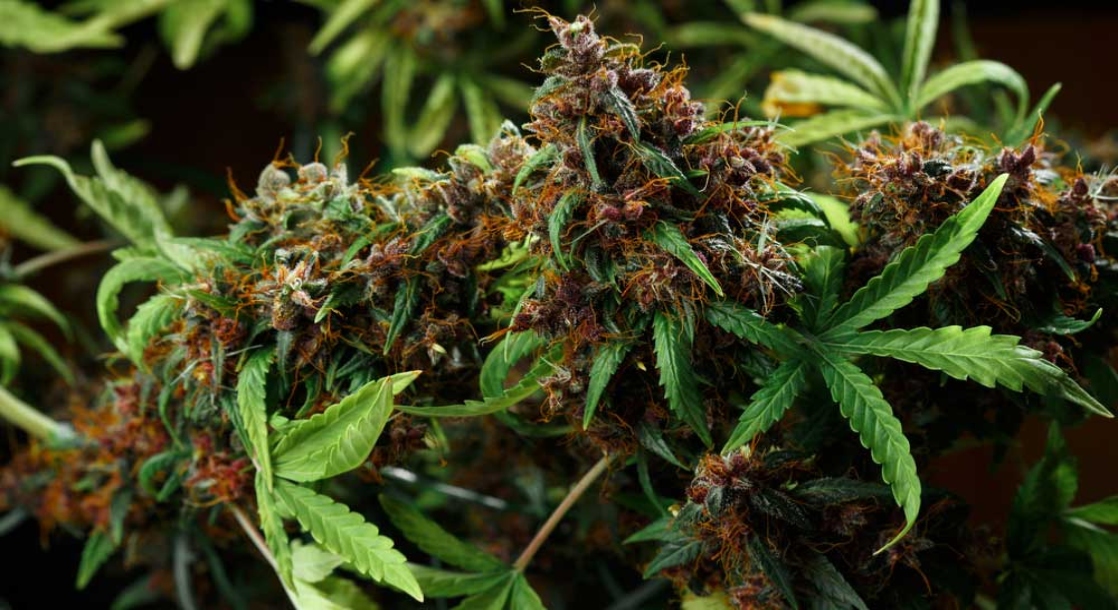Keith Lamont Scott was reportedly rolling a marijuana blunt at the time he was confronted by police officers, which played a major role in his death, Charlotte Mecklenburg Police Department Chief Kerry Putney revealed over the weekend.
Officers were attempting to serve a warrant when they spotted Scott roling “what they believed to be a marijuana ‘blunt’” in his car. They also saw Scott had a weapon.
“Officers did not consider Mr. Scott’s drug activity to be a priority” until they saw the gun. According to Putney, officers thought: “Uh,oh this is a safety issue for us and the public.”
A police report adds: “Because of that, the officers had probable cause to arrest him for the drug violation and to further investigate Mr. Scott being in possession of the gun.” Police released video of a gun ankle holster and joint he possessed at the time of the shooting.
“It was not lawful for [Scott] to possess a firearm. There was a crime he committed and the gun exacerbated the situation,” Putney said.
“Due to the combination of illegal drugs and the gun Mr. Scott had in his possession, officers decided to take enforcement action for public safety concerns,” the statement reads. Putney said that, although Scott “absolutely” had a gun, this wouldn’t be clear from the video released.
Body-cam and dash-cam videos of the encounter have been released, though no gun is visible in that video except the officer’s.
In the video Scott is seen calmly backing down the driveway. The September evening sun, not yet ready for the winter in Charlotte, beats down on him. The officers surrounding him are clearly tense. They point weapons at the suspect. He had a blunt, they said. Then, a gun, they said. With the man’s arms to his side, relaxed, the first bullet goes off. Scott can’t imagine they’re shooting at him. As three more bullets are fired, Scott drops to the ground. He dies.
“Officers are absolutely not being charged by me at this point,” the police chief said. According to the police statement, officers “gave clear, loud and repeated verbal commands to drop the gun,” but Scott “refused to follow the officer's repeated verbal commands.”
Scott then “exited the vehicle with the gun and backed away from the vehicle while continuing to ignore officers’ repeated loud verbal commands to drop the gun.”
“An imminent physical threat” led officers to shoot. A lab analysis “revealed the presence of Mr. Scott’s DNA and his fingerprints” on the loaded gun, police say.
The shootings come as harsh reminder of why NFL Quarterback Colin Kaepernick and others are taking a knee during the national anthem.
The tone in Charlotte over the weekend was somber. Initially under a midnight curfew and a state of emergency with National Guard troops, armored vehicles and tear gas deployed, Sunday brought about peaceful demonstrations as the city hosted the NFL game between the Carolina Panthers and the Minnesota Vikings.
The shootings are expected to be a focal point in tonight’s presidential debate, the first between Hillary Clinton and Donald Trump.
Watch the released body cam video here.
The ACLU is calling on Charlotte police to release all the remaining video footage of the events surrounding the shooting.
Susanna Birdsong, Policy Counsel for the ACLU of North Carolina, said it’s clear to her that the officer wearing the body camera violated policy by not activating the device sooner.
“A body camera policy is not worth the paper it’s written on if officers aren’t abiding by the standards and protocols we expect them to be using,” Birdsong said.
If the officer had activated the camera earlier, Birdsong told the Charlotte Observer it might have provided more insight into what – if any – efforts police had taken to deescalate the situation and why they felt a need to use deadly force.
“The videos released this weekend raise a host of questions about why police shot and killed Keith Lamont Scott, and whether, in doing so, the officers involved violated state or federal law, in addition to failing to follow the department’s own rules regarding the use of deadly force, deescalation, when to wear and activate body cameras, and more,” said Birdsong, the ACLU’s lawyer.











